
Math Tutoring Aurora | Foundations based on Understanding
Our students have gained admission to leading universities such as Waterloo, Queen’s, McGill, Laurier, and Western, with scholarships ranging from $2,000 to $48,000.

How Our Aurora Math Tutors Help You Build a Strong Foundation?
Math can be challenging for many students because it is cumulative—when foundational skills are missed, gaps develop and make future learning more difficult. That’s why building a strong foundation is essential.
QE teaching approach focuses on understanding, not memorizing
Memorization is not the right approach. Many students rely on memorizing equations and steps, hoping the same questions will appear on tests—but they rarely do. Math should be learned through understanding and applying concepts to different types of problems. This means grasping the “why” behind each concept and learning how the pieces connect to form the bigger picture. Once students develop this understanding, solving problems becomes much easier.
We primarily support students across Aurora - including Nepean, Kanata, Orleans, The Glebe and Vanier, offering structured online

Tutoring Team in Aurora
QEA Math Teacher
Nikki is a certified teacher with Master degree in Education from University of Toronto. She has been working with QEA for over 6 years, and many of QEA top students came out of her class
Our high quality lessons are backed by successful track records:
-
Focus on strengthening foundations and filling in gaps from previous years. This is especially important for students who struggle with math. As their understanding grows, they develop a solid grasp of the material and gradually build confidence.
-
Our tutoring follows a structured, lesson-based approach. We focus on teaching core concepts and guiding students through application-based word problems. With detailed lesson plans for each unit, we ensure all key concepts and problem types are thoroughly covered.
-
We emphasize challenging application and word problems, which are especially critical in Advanced Functions (MHF4U) and Calculus (MCV4U). This approach ensures students are well-prepared for the level of difficulty they will face on tests.
-
Provide worksheets for weekly practice, including difficult application / thinking / word problems that students will encounter on tests
-
Test writing strategies will be taught to our students to maximize their performance on tests.
-
Exam review package and mock exams will be provided before the finals.
MCR3U - Math Tutoring for Math 11 Functions
- Grade 11 math (MCR3U) is an important foundation course, that students need to master foundations to do well in the grade 12 advanced functions.
- The key foundation units are: exponents, transformations, trigonometry and polynomials.
Learn Math 11 foundation with QE Math tutoring Aurora
MHF4U - Math Tutoring for Advanced Functions
- Advanced Functions is required for most university applications. This is a demanding course and the foundation from grade 11 math is important. The tough units includes: trigonometry, logarithms, and rational functions.
- Prepare for a demanding course: We help students transition smoothly from Grade 11 math by reinforcing key concepts and identifying gaps before they become obstacles.
- Study hard for foundation skills: Our tutoring focuses on challenging areas like trigonometry, function transformations, and algebraic proofs, where many students tend to struggle.
- Stay consistent through ups and downs: With regular support and personalized strategies, we guide students through the “rollercoaster” nature of the course and keep them on track for university success.
Enhance your problem solving skills with Math Tutoring Aurora
IB Math Tutoring Aurora
- IB Math approaches university level, and our focus is to build the foundation for advanced concepts, and teaching our students problem solving techniques to perform well in IB Math.
- Master IB-style problems: We break down complex concepts, then guide students through the unique problem types found in IB exams — a critical step in moving from understanding to mastery.
- Practice with purpose: Our custom IB-level worksheets and weekly assignments help students build familiarity with the exam’s difficulty and develop consistent problem-solving habits.
Learn challenging problems with IB Math Tutoring Aurora
Grade 9-10 Junior high school Math Tutoring
- Grade 9 and 10 are critical years to build the foundation for senior high school math. Students neglect the foudnation skills such as factoring, linear systems and graphing will encounter significant difficulty in grade 11 and 12.
- Step-by-step, one-on-one support: We follow the school curriculum closely and explain each concept clearly to ensure your child truly understands the "why" behind every problem.
- Foundation for future success: By mastering core skills early, students gain the confidence and readiness they need for the senior high school years when grades start to count for university.
Learn math foundation with Math Tutoring Aurora
Thank you QE - for the Foundation!
Emily H.
admitted to
Queen's Commerce
Jivan K.
admitted to
Waterloo Engineering
Stephanie L.
admitted to
Queen's Commerce
Andrew G.
admitted to
Western Engineering

Private 1 on 1 Math Tutoring in Aurora that builds foundations
We focus on understanding not memorizing. We have a structured approach with lessons teaching to the students based on his Ontario school curriculum. We also teach problem solving techniques that help students to tackle application / thinking problems on tests.
The QEA Structured Approach
We share the best approach from other top 95%+ students and our wealth of experience. This helps our students to build long term success.

a QE student since grade 9
Admitted to Yale University
Success of QEA alumni



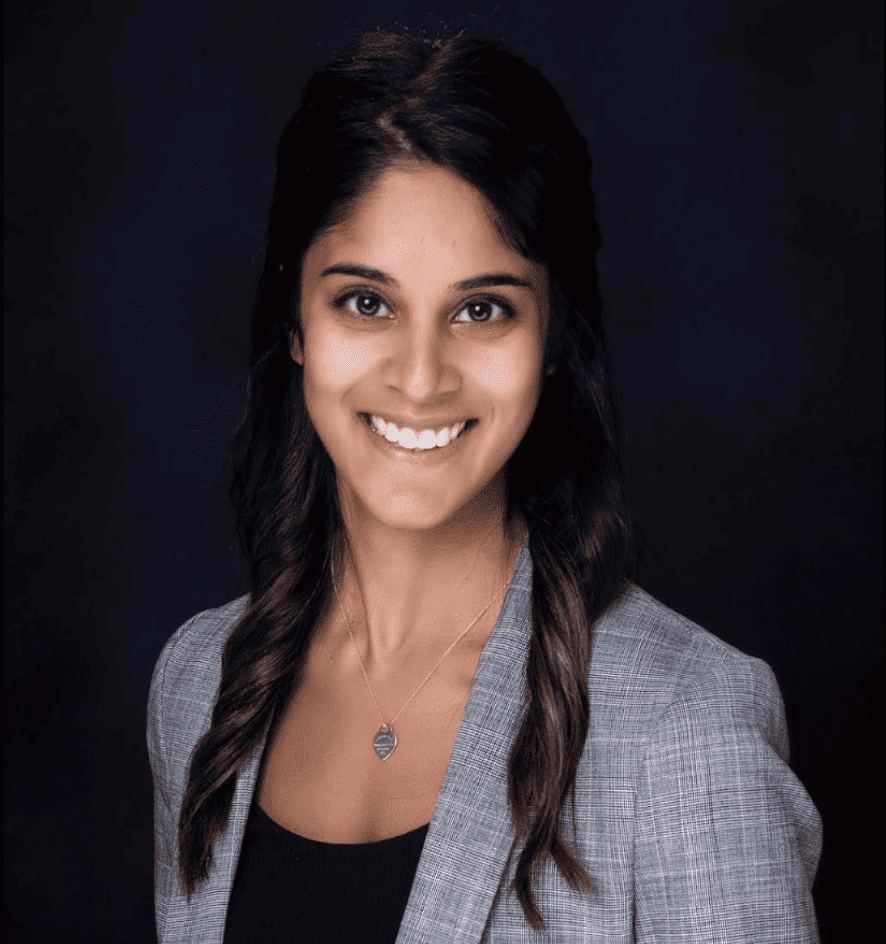




We also support students with a full range of tutoring subjects across Aurora
Math Tutor in Aurora - one on one support in algebra, calculus and more
Physics Tutor Aurora - help with concepts, equations and exam prep
Chemistry Tutor Aurora - support for high school and advanced chemistry
English Tutor in Aurora - essay writing and critical thinking, based on Aurora school curriculum

Trusted by Students from Top Aurora Schools
Aurora Neighbourhood
We help students across Nepean, Kanata, Orleans, The Glebe, Vanier, ByWard

Meet our math tutoring team in Aurora
York University
QEA Math Tutor
QEA Tutoring in Aurora - in Action!
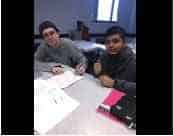
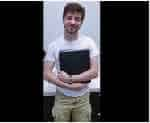

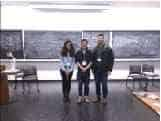
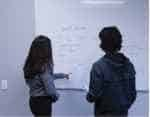
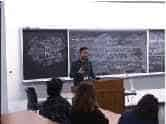
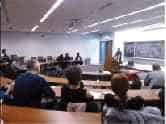
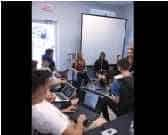
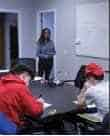
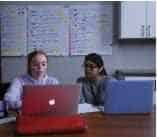


How to get high marks in Math 11 (MCR3U)?
- Math tutoring Aurora
Common challenges for math 11
Grade 11 Math (MCR3U) challenges students with a big jump in difficulty, introducing abstract concepts and demanding more independent problem-solving.
- Students often struggle with new topics like trigonometric identities, graph transformations, and algebraic proofs — all of which require deeper conceptual understanding.
- Course selection adds pressure, as many students are unsure whether to take the Academic or Mixed stream, not realizing that Academic Math keeps more university options open.
2 tips to score higher marks on math 11 MCR3U
Before taking this math course, try to strengthen your math foundational skills from grade 10. Key math skills include factoring (especially trinomials), fractions (grade 8-9 level), Linear systems and quadratics with a good understanding of domain and range, x and y intercepts and asymptotes. With math foundational skills down it will be easier to follow the lessons and work in this math course, and less time will be spent catching up on previous material.
Many grade 11 math questions involve multiple steps. Ensure you understand why you are undertaking each step from a logical or math perspective, and the pinpoint the goal of the steps, that is to say as ‘what am I trying to solve?’ Work through the steps after you have done this. By breaking the problems into steps, the questions will seem less overwhelming.

How to get high marks in Advanced Functions (MHF4U)?
- Math tutoring Aurora
Common challenges for advanced functions
Advanced Functions (MHF4U) can feel like a rollercoaster for many students, as it combines familiar concepts with much more complex applications.
- The calculus section builds on Advanced Functions, requiring a strong grasp of algebra, trigonometry, and graphing to succeed with derivatives and related applications.
- The vector section introduces brand-new 3D concepts, with problem-solving skills that feel closer to physics — often catching students off guard if they lack spatial reasoning or experience.
2 tips to score higher marks on advanced functions MHF4U
It would be a good idea, before the beginning of Advanced Functions, to brush up on the foundation's skills of math, such as factoring (especially trinomial factoring), domain and range, graphing, adding rational expression, and trigonometry ratios. If you wait until the course begins, it may be difficult to keep pace with the new material in Advanced Functions. Foundations are always important, and as with all mathematics course, this one builds upon your past knowledge, so be sure to review before starting Advanced Functions!
Also, make sure to keep good, organized notes to stay on top of the course units in Advanced Functions. Do not be afraid to practice problems beyond those assigned in the homework, as Advanced Functions is known for containing a very wide variety of questions and problems, and therefore the more you expose yourself to such problems, the better prepared you will be. Because of this, the Queen Elizabeth Academy provides all of our students with extra worksheets on Advanced Functions and practice tests to hone their skills and succeed.

How to get high marks in Calculus (MCV4U)?
Math tutoring Aurora
Common challenges for Calculus and Vectors 12
Calculus and Vectors (MCV4U) is a split-focus course that challenges students with both advanced function-based calculus and entirely new vector concepts.
- The calculus section builds on Advanced Functions, requiring a strong grasp of algebra, trigonometry, and graphing to succeed with derivatives and related applications.
- The vector section introduces brand-new 3D concepts, with problem-solving skills that feel closer to physics — often catching students off guard if they lack spatial reasoning or experience.
2 tips to score higher marks on Calculus and Vectors 12 MCV4U
In order to succeed in Vector Calculus, make sure you are proficient in exponents, factoring, combining rational expressions such as fractions with algebra, and solving equations.
Make sure to pay special attention to the Optimization Unit in Calculus, which includes many word problems. If you struggle with word problems, make sure to prepare for this Calculus unit in particular. As always, make sure to keep your notes organized. Identify the different kinds of Calculus problems. This will help you to clarify the Calculus concepts in this course significantly, and also help to keep track of your progress.
When approaching vectors in Calculus, the concepts are highly complex. To address this, try to lay out and write down all of the steps clearly, and write down why you are taking such steps as well. What variable are you attempting to achieve at every step? This approach to tackle Calculus will simplify some of the more complex questions, and will also allow you to pinpoint areas in which you will require extra help.

FAQ for Math Tutoring Aurora
How much does a math tutor cost per hour in Canada?
The cost per hour for math tutor in Canada, depends on the grade. For QE Math tutoring, you get the most value out of the money you spend. You get great education and caring tutors who will help your child to build foundation, not just answering a few questions.
How much is a math tutor in Ontario?
The cost for a math tutor in Ontario depends on the grade level. For QE math tutoring, you get the best learning experience, building the foundation and great education for the money you spend. It's more than just getting someone to answer a few questions. Your child will get a role model, a top academic achiever, who will coach and guide your child step by step.
Is Mathnasium better than Kumon?
We don't comment on our competitor, but QE delivers one on one private tutoring (not groups) that is lesson based with high quality tutors.
Are math tutors worth it?
Math tutor is worth it, if you can find a good one, who will help you to build a good foundation It's important because math counts for most of your university application marks, and it's very competitive.
How much does a math tutor cost in Aurora?
It varies based on the age of the child and subject university tutoring of course requires a different level of expertise and will cost more than elementary school tutoring doing division.
Is it worth getting a maths tutor?
The main part is to build a good foundation. Math is cumulative, if you ignore the issue, it will stack up and you still have to deal with the foundation gaps at a later date.
What should you not do when tutoring
4 things that you shouldn't do when tutoring:
1. Late
2. Lose focus
3. Not know what topic to cover
4. Lack of practice / don't do your homework
How many times a week should I see a tutor?
Depending on your level. If you are 80 or above, once a week should be sufficient. If you are getting below 70, we will strongly recommend to come 2x a week.
Is private tutoring legal in Canada
Yes of course. Education is an important component and the Government of Canada always encourages it.
Is hiring a tutor worth it?
Yes if your tutor is good, knows how to teach, and knowledgable. We have the best tutors in the QE team, who have the experience and passion to help you succeed.
Is it worth paying a tutor?
Yes if your tutor is good and if you are behind. It is important to build a good foundation, so you can excel in your high school year and be competitive on your university applications.
How many hours should I tutor per week?
It depends on your grade. If you are 80 or above, once a week should be fine. If you get under 70, we will strongly recommend to do twice a week.
At what age should I get my child a tutor?
We have students coming from grade 5 to university. Grade 5 to 7 will be a good starting age, where the basic foundation is important and you are not doing catch-up. In this case you can nurture your child's skill and interest and build a good routine.
Are tutors better than teachers?
Teachers have to manage a class or 30+ kids, whereas QE tutors are one on one. The level of attention is unmatch - not because of the skills of the teacher, but because of the session setup. We can target and tailor to the strengths and weakness of the student and focus on overcoming individual gaps in their foundation. You can't do that in a 30 kids classroom.
Is tutoring once a week effective?
It depends on the student's level. If the student is achieving 80% or above, then once a week should be fine. Anything below you should consider doing twice a week. A lot of time has to be spent on overcoming your foundation gaps, and at the same time keep you up on the current curriculum.
What is the hardest part of tutoring?
The hardest part of tutoring is adapting the teaching approach to the learning style of the student. The second part is to encourage and inspire the student with passion, especially the ones who have lost confidence. QE has turned around students from 55% to acheiving 89% in grade 12, within a year. But this takes a lot of efforts and persistence.
How long is a typical tutoring session?
At QE, high school tutoring sessions are 1.5 hours each, whereas elementary tutoring is 1 hour each.
How many times a week should you tutor?
Ongoing research consistently demonstrates that students perform at their best when they receive regular and consistent tutoring services. For the majority of students, receiving this level of support twice a week strikes a balance that provides necessary assistance without feeling overly burdensome.
Is 50 too old to start teaching?
Regardless of where you are in your path towards becoming a teacher, it is essential to recognize that age should not be a determining factor. Schools and students require a diverse range of teachers with varied backgrounds and experiences. In fact, your unique experiences and skills are likely to be an asset, contributing to the richness and value of your classroom and your teaching. In summary, it is never too late to pursue a career in teaching!
What a tutor should not do?
Here are 7 things that tutors must avoid:
1.Revealing personal details about their private life. While it is the responsibility of tutors to supervise the academic development of their students, it is also important to maintain appropriate social boundaries.
2.Engaging in physical contact with their students.
3.Showing up for sessions unprepared.
4.Losing their temper or composure while tutoring.
5.Refusing to adapt to the individual learning styles and needs of their students.
6.Moving through material too quickly, without ensuring that their students have understood the concepts.
7.Making promises that they cannot keep.
Is paying for a tutor worth it?
Tutoring offers a valuable opportunity for one-on-one attention to your child, and consistent sessions provide them with the chance to work through homework assignments, improve organizational skills, develop effective planning strategies, and prepare thoroughly for upcoming tests.
Can I become a teacher without a degree?
It is possible to become a teacher without a degree and obtain the Qualified Teacher Learning and Skills (QTLS) status, which the government recognizes as being equivalent to Qualified Teacher Status (QTS) in maintained primary and secondary schools.
How do I know if a tutor is good?
When evaluating whether a tutor is a good fit for you, consider these five factors:
1.The tutor establishes a positive working relationship with you.
2.The tutor communicates their plans and expectations in a clear and timely manner.
3.The tutor is able to explain complex concepts in a way that is easy to understand.
4.The tutor's ultimate goal is to help you become self-sufficient and independent.
5.The tutor's expectations are realistic and achievable.
Remember, hiring a tutor is a decision that revolves around your needs and goals.
What are the disadvantages of tutoring?
Here are some potential drawbacks to consider when hiring a tutor:
High expenses
Risk of wasting money
Poor match with tutor
Tutor may not be certified
Safety concerns
Children may view tutoring as an obligation, leading to lack of motivation
Reduced time for extracurricular activities and other pursuits
In contrast, here are 5 benefits of STEM education for girls.
How do I know if a tutor is good?
When choosing a tutor, consider these 5 factors to assess if they are a good fit for you:
1.The tutor establishes a strong and effective working relationship with you.
2.The tutor communicates their plans and objectives clearly and in advance.
3.The tutor can simplify complex concepts and make them easy to understand.
4.The tutor's ultimate goal is to empower you to work independently without requiring their assistance.
5.The tutor sets reasonable and achievable expectations for your progress.
Remember, selecting a tutor is a decision that should prioritize your unique needs and learning goals.
How do I find a math tutor?
One effective way to find a high-quality tutor for your child is to ask other parents for recommendations. Word of mouth can be an invaluable resource in this regard. If you are aware of another parent who has hired a math tutor for their child, consider requesting their contact information, thereby streamlining the search process with minimal effort.
What is an unqualified teacher?
The term "unqualified teacher" refers to an individual who lacks an approved teacher's qualification.
FAQ for Math Tutoring Aurora

High school math topics
In taking high school math course, here are the topics covered:
MPM1D. Grade 9 Principle of Mathematics
Grade 9 Math Tutoring Curriculum
| Unit | Topics |
|---|---|
| Unit 1. Numeracy and Number Sense |
|
| Unit 2. Polynomials |
|
| Unit 3. Equations |
|
| Unit 4. Linear Relations |
|
| Unit 5. Measurement and Geometry |
|
MPM2D. Grade 10 Principles of Mathematics
Grade 10 Math Tutoring Curriculum
| Unit | Topics |
|---|---|
| Unit 1. Quadratic Relations |
|
| Unit 2. Analytic Geometry |
|
| Unit 3. Trigonometry |
|
| Unit 4. Polynomials and Factoring |
|
MCR3U. Grade 11 Functions
Grade 11 Math Tutoring Curriculum
| Unit | Topics |
|---|---|
| Unit 1. Exploring Functions |
|
| Unit 2. Trigonometry |
|
| Unit 3. Trigonometric Functions |
|
| Unit 4. Sequences and Series |
|
MHF4U. Grade 12 Advanced Functions
Grade 12 Math Tutoring Curriculum
| Unit | Topics |
|---|---|
| Unit 1. Polynomial Functions |
|
| Unit 2. Polynomial Equations |
|
| Unit 3. Trigonometric Functions |
|
| Unit 4. Logarithmic Functions |
|
MCV4U. Grade 12 Calculus and Vectors
Grade 12 Math Tutoring Curriculum
| Unit | Topics |
|---|---|
| Unit 1. Vectors |
|
| Unit 2. Vector Applications |
|
| Unit 3. Lines and Planes |
|
| Unit 4. Rates of Change and Limits |
|
| Unit 5. Derivative Rules |
|
| Unit 6. Curve Sketching |
|

Thank you Queen Elizabeth Academy!
Students tutored by QEA in Aurora
Google Reviews

Victor is excellent at communicating with parents and students and he is also very good at listening and acting on everyones feedback. Highly recommend QEA!!read more
students enrolled in our Math Tutoring Aurora Program

Find Queen Elizabeth Math Tutor at your neighborhood
*Note that Queen Elizabeth premise are currently located in Mississauga, Oakville and Etobicoke. For the other locations, we offer online live tutoring over zoom.
We also support students with a full range of tutoring subjects across Aurora
Math Tutor in Aurora - one on one support in algebra, calculus and more
Physics Tutor Aurora - help with concepts, equations and exam prep
Chemistry Tutor Aurora - support for high school and advanced chemistry
English Tutor in Aurora - essay writing and critical thinking, based on Aurora school curriculum
Views Counter: Loading...









